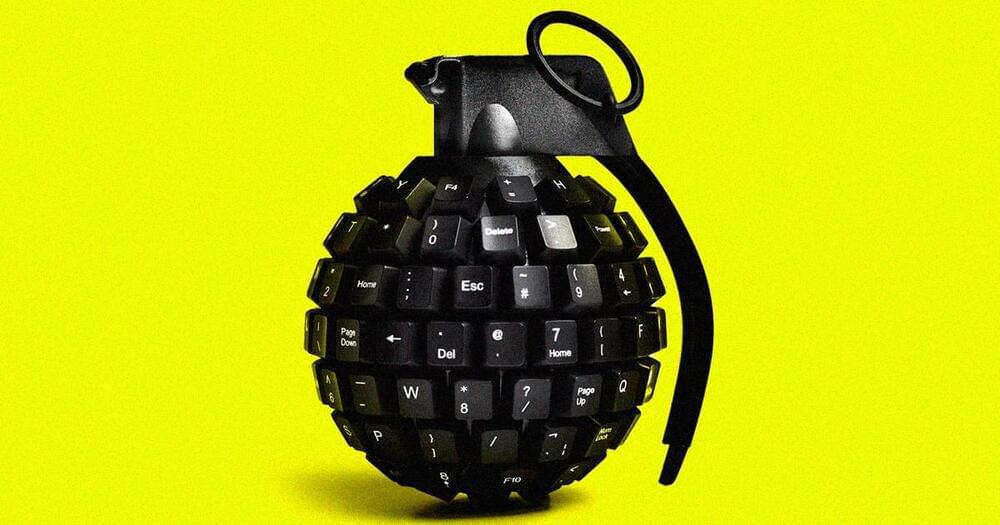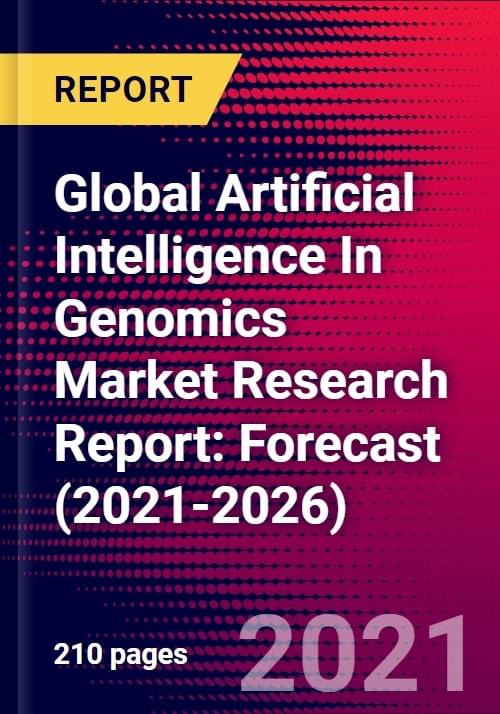Page 6122
Oct 14, 2021
Homeland Security Warns of Cyberattacks Intended to Kill People
Posted by Shane Hinshaw in category: cybercrime/malcode
Oct 14, 2021
New Treatment Eradicated Tumors in Terminally Ill Cancer Patients
Posted by Shane Hinshaw in category: biotech/medical
I had virtually no side-effects and was able to carry on as normal doing the things I love.
Artificial intelligence (AI) is increasingly becoming a tool for researchers in other science and technology fields, forging collaborations across disciplines. Stanford University in California, which produces an index that tracks AI-related data, finds in its 2021 report that the number of AI journal publications grew by 34.5% from 2019 to 2020; up from 19.6% between 2018 and 2019 (see go.nature.com/3mdt2yq). AI publications represented 3.8% of all peer-reviewed scientific publications worldwide in 2,019 up from 1.3% in 2011.
Five AI researchers describe the fruits of these collaborations, beyond journal publications, and talk about how they are helping to break down barriers between disciplines. across disciplines are growing, and artificial intelligence is helping to make joint working more effective.
Oct 14, 2021
Detailed Analysis of the Global Artificial Intelligence Market, 2021–2026 — ResearchAndMarkets
Posted by Gemechu Taye in category: robotics/AI
According to the report, the global AI market will be worth US$284.4 billion by 2026.
Today, the artificial intelligence platform has become a way for computer systems to perform tasks like human intelligence including decision-making and speech recognition. Globally, problem-solving, social intelligence, and general intelligence are being achieved with the help of the artificial intelligence platform. Moreover, rising high-level computer languages are helping various industries to work efficiently on the artificial intelligence platform.
Full Story:
Oct 14, 2021
Much ‘Artificial Intelligence’ Is Still People Behind a Screen
Posted by Gemechu Taye in categories: information science, mobile phones, robotics/AI
AI startups can rake in investment by hiding how their systems are powered by humans. But such secrecy can be exploitative.
The nifty app CamFind has come a long way with its artificial intelligence. It uses image recognition to identify an object when you point your smartphone camera at it. But back in 2015 its algorithms were less advanced: The app mostly used contract workers in the Philippines to quickly type what they saw through a user’s phone camera, CamFind’s co-founder confirmed to me recently. You wouldn’t have guessed that from a press release it put out that year which touted industry-leading “deep learning technology,” but didn’t mention any human labelers.
The practice of hiding human input in AI systems still remains an open secret among those who work in machine learning and AI. A 2019 analysis of tech startups in Europe by London-based MMC Ventures even found that 40% of purported AI startups showed no evidence of actually using artificial intelligence in their products.
Oct 14, 2021
Implantable Technology could be a game-changer for heart patients
Posted by Kelvin Dafiaghor in categories: biotech/medical, health
Implantable heart technology is being used in Manchester to assess when a patient is at high risk of dying, thanks to an NIHR ARC-GM and University of Manchester led research published today.
The pacemakers and defibrillators contain multiple sensors that allow continuous monitoring of a patient’s heart health, 24 hours a day. The study published in Europace and funded by the Medical Research Council is a collaboration between The University of Manchester, Manchester University NHS Foundation Trust (MFT), Health Innovation Manchester, the National Institute for Health Applied Research Collaboration Greater Manchester (ARC-GM) and Medtronic – who manufacture implantable devices.
The research team examined remotely monitored health related data from 439 patients at Manchester Royal Infirmary over two years. The study reported a three-fold increase in odds of mortality for patients who spent at least one day in high-risk status. There was also a 26% increase in the odds of mortality for patients who had 14 consecutive days or more in a high-risk status compared with those whose high-risk episodes were shorter. Higher percentages of time spent in a high-risk status, and less time in a low-risk status, were also associated with increased risk of death.
Oct 14, 2021
Artificial intelligence: ‘The window to act is closing fast’
Posted by Gemechu Taye in categories: business, climatology, employment, military, robotics/AI, sustainability, terrorism
Artificial intelligence (AI) is a force for good that could play a huge part in solving problems such as climate change. Left unchecked, however, it could undermine democracy, lead to massive social problems and be harnessed for chilling military or terrorist attacks.
That’s the view of Martin Ford, futurist and author of Rule of the Robots, his follow-up to Rise of the Robots, the 2015 New York Times bestseller and winner of the Financial Times/McKinsey Business Book of the Year, which focused on how AI would destroy jobs.
In the new book, Ford, a sci-fi fan, presents two broad movie-based scenarios.
Oct 14, 2021
Artificial Intelligence Can Improve How People Use Tech
Posted by Gemechu Taye in categories: biotech/medical, government, robotics/AI

In 2,019 a survey from the Center for Digital Government (CDG), the National Association of Chief Information Officers and IBM found that just 13 percent of state governments reported using artificial intelligence in some non-core part of their operations. Three years later, the same survey yielded very different results.
At the NASCIO annual confference in Seattle this week, Joe Morris with CDG presented some of the study’s 2021 findings, and it was clear that the COVID-19 pandemic changed how state and local government are thinking about AI. This year, 60 percent of respondents reported AI is currently in use in their enterprise; 6.7 percent said the tech is widely used across the state, up from just 1 percent in 2019.
Continue reading “Artificial Intelligence Can Improve How People Use Tech” »
Oct 14, 2021
CITYTREE: This is a repost:
Posted by Omuterema Akhahenda in categories: biotech/medical, robotics/AI
The is the world’s first biotech fine dust filter for urban spaces. Integrated moss modules bring the forest into the city and ensure that the air is verifiably and noticeably clean. We combine the natural filtering power of mosses with smart IoT technology. With an automated irrigation and ventilation system, the can clean and cool the surrounding air. Independent studies show that up to 82% of the fine dust in the air is filtered directly through the moss and the air is also cooled by up to 2.5 ° C.
















